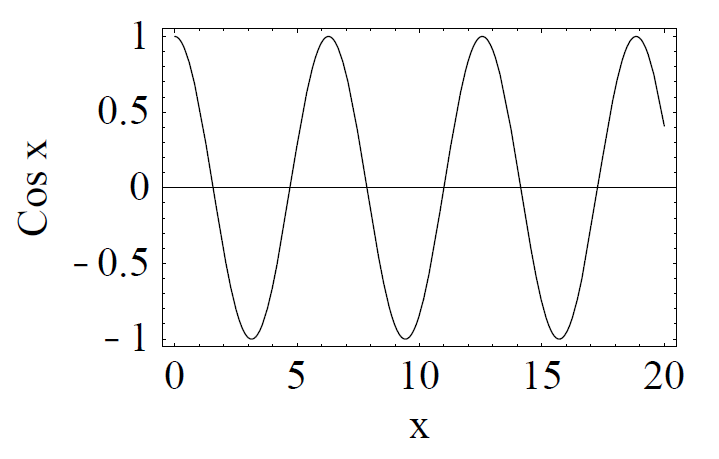
تاريخ الفيزياء

علماء الفيزياء


الفيزياء الكلاسيكية

الميكانيك

الديناميكا الحرارية


الكهربائية والمغناطيسية

الكهربائية

المغناطيسية

الكهرومغناطيسية


علم البصريات

تاريخ علم البصريات

الضوء

مواضيع عامة في علم البصريات

الصوت


الفيزياء الحديثة


النظرية النسبية

النظرية النسبية الخاصة

النظرية النسبية العامة

مواضيع عامة في النظرية النسبية

ميكانيكا الكم

الفيزياء الذرية

الفيزياء الجزيئية


الفيزياء النووية

مواضيع عامة في الفيزياء النووية

النشاط الاشعاعي


فيزياء الحالة الصلبة

الموصلات

أشباه الموصلات

العوازل

مواضيع عامة في الفيزياء الصلبة

فيزياء الجوامد


الليزر

أنواع الليزر

بعض تطبيقات الليزر

مواضيع عامة في الليزر


علم الفلك

تاريخ وعلماء علم الفلك

الثقوب السوداء


المجموعة الشمسية

الشمس

كوكب عطارد

كوكب الزهرة

كوكب الأرض

كوكب المريخ

كوكب المشتري

كوكب زحل

كوكب أورانوس

كوكب نبتون

كوكب بلوتو

القمر

كواكب ومواضيع اخرى

مواضيع عامة في علم الفلك

النجوم

البلازما

الألكترونيات

خواص المادة


الطاقة البديلة

الطاقة الشمسية

مواضيع عامة في الطاقة البديلة

المد والجزر

فيزياء الجسيمات


الفيزياء والعلوم الأخرى

الفيزياء الكيميائية

الفيزياء الرياضية

الفيزياء الحيوية

الفيزياء العامة


مواضيع عامة في الفيزياء

تجارب فيزيائية

مصطلحات وتعاريف فيزيائية

وحدات القياس الفيزيائية

طرائف الفيزياء

مواضيع اخرى
Simple Harmonic Motion
المؤلف:
Professor John W. Norbury
المصدر:
ELEMENTARY MECHANICS & THERMODYNAMICS
الجزء والصفحة:
p 176
30-12-2016
4357
Simple Harmonic Motion
An important property of oscillatory motion is the frequency f which is the number of oscillations completed each second. The units are sec-1 or Hertz, often abbreviated as Hz. Thus

Another related quantity is the period T which is the time taken to complete 1 full oscillation. Now

and if the time is simply T then 1 oscillation is completed. Thus

In circular motion, which is a type of oscillatory motion, we introduced the angular speed  defined as
defined as

Clearly if Δθ = 2π then Δt = T giving  . Thus angular velocity and frequency are related by
. Thus angular velocity and frequency are related by

In oscillations  is often called angular frequency. Any motion that repeats itself at regular intevals is called oscillatory motion or harmonic motion. Now of all the mathematical functions that you have ever come across, there is one famous function that displays oscillations and that is cos θ, which is plotted in Figure 1.1.
is often called angular frequency. Any motion that repeats itself at regular intevals is called oscillatory motion or harmonic motion. Now of all the mathematical functions that you have ever come across, there is one famous function that displays oscillations and that is cos θ, which is plotted in Figure 1.1.

FIGURE 1.1 Plot of cos θ.
Thus the displacement x for oscillatory motion can be written

but  , giving
, giving

We can also introduce a phase angle ϕ if we want and instead write

Here xm refers to the maximum value of the displacement x. And xm is often called the amplitude of the motion. Any motion that obeys the above equation x = xm cos !t is called Simple Harmonic Motion (SHM). The velocity of SHM is easy to figure out. First recall that if y = cos kx then  . Now the velocity is
. Now the velocity is

Also recall if y = sin kx when  . Now the acceleration is
. Now the acceleration is

from which it follows that

Notice that when x and a are at a maximum, then v is a minimum and vice-versa.
 الاكثر قراءة في الميكانيك
الاكثر قراءة في الميكانيك
 اخر الاخبار
اخر الاخبار
اخبار العتبة العباسية المقدسة

الآخبار الصحية















 قسم الشؤون الفكرية يصدر كتاباً يوثق تاريخ السدانة في العتبة العباسية المقدسة
قسم الشؤون الفكرية يصدر كتاباً يوثق تاريخ السدانة في العتبة العباسية المقدسة "المهمة".. إصدار قصصي يوثّق القصص الفائزة في مسابقة فتوى الدفاع المقدسة للقصة القصيرة
"المهمة".. إصدار قصصي يوثّق القصص الفائزة في مسابقة فتوى الدفاع المقدسة للقصة القصيرة (نوافذ).. إصدار أدبي يوثق القصص الفائزة في مسابقة الإمام العسكري (عليه السلام)
(نوافذ).. إصدار أدبي يوثق القصص الفائزة في مسابقة الإمام العسكري (عليه السلام)


















